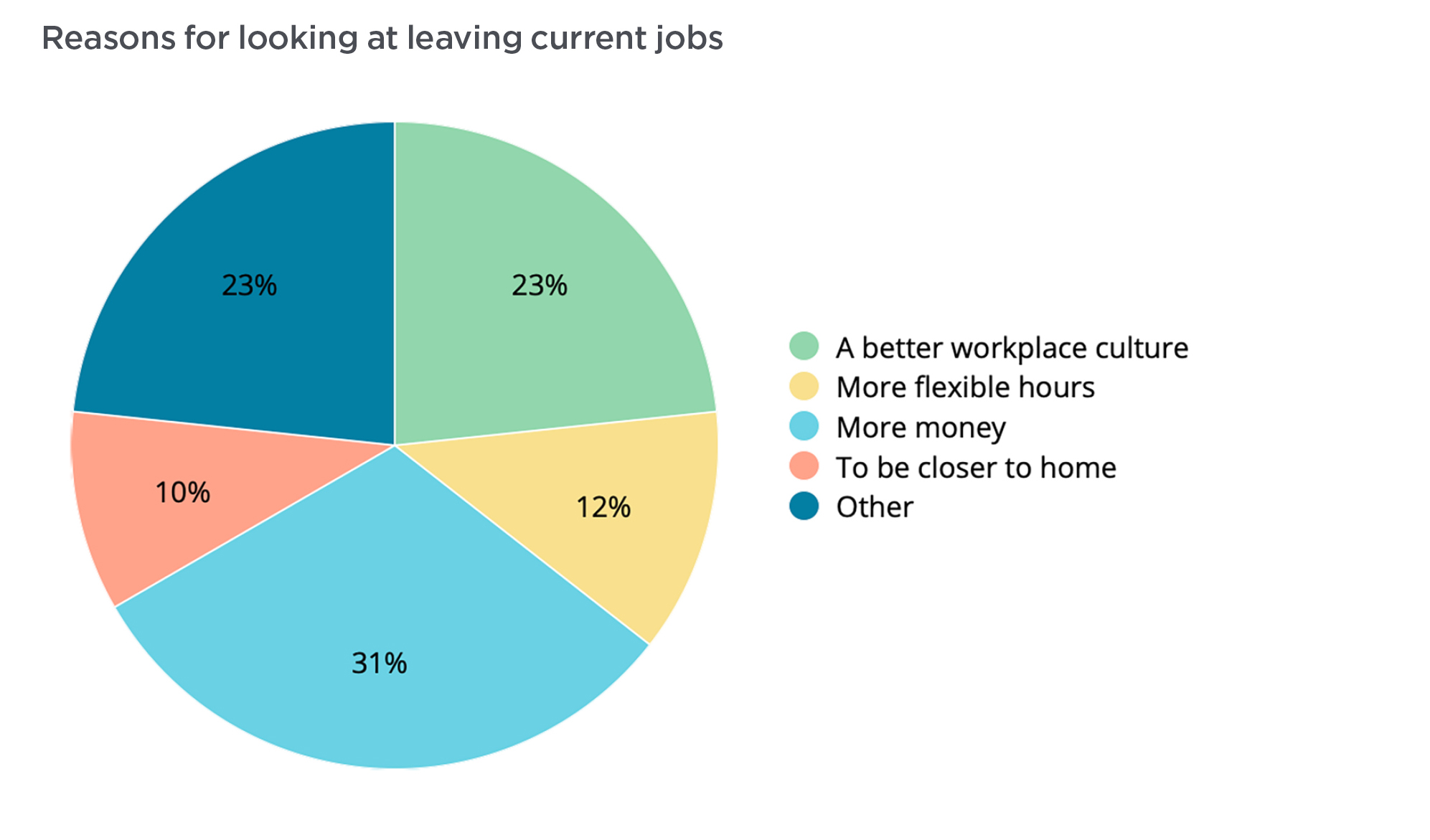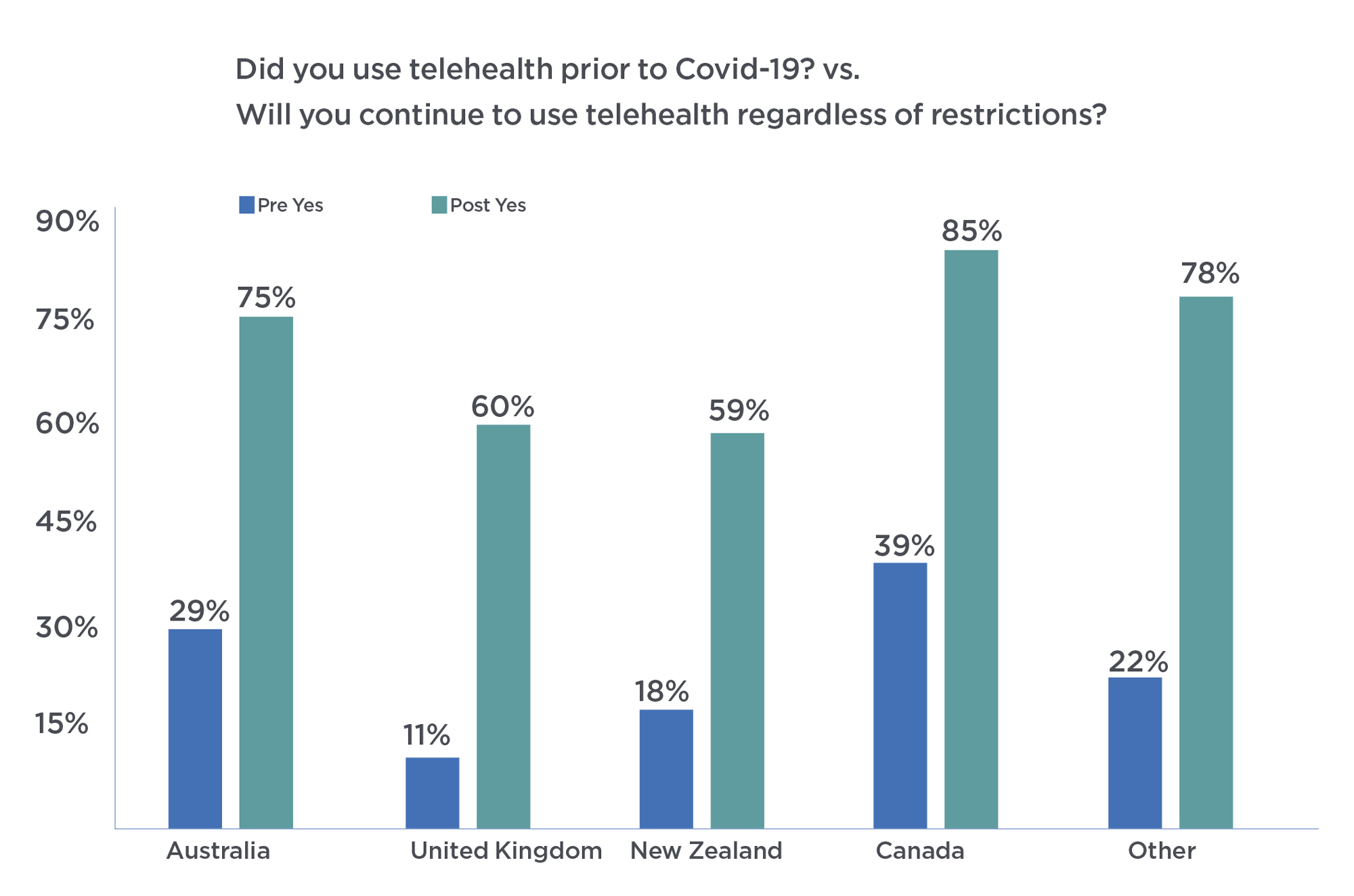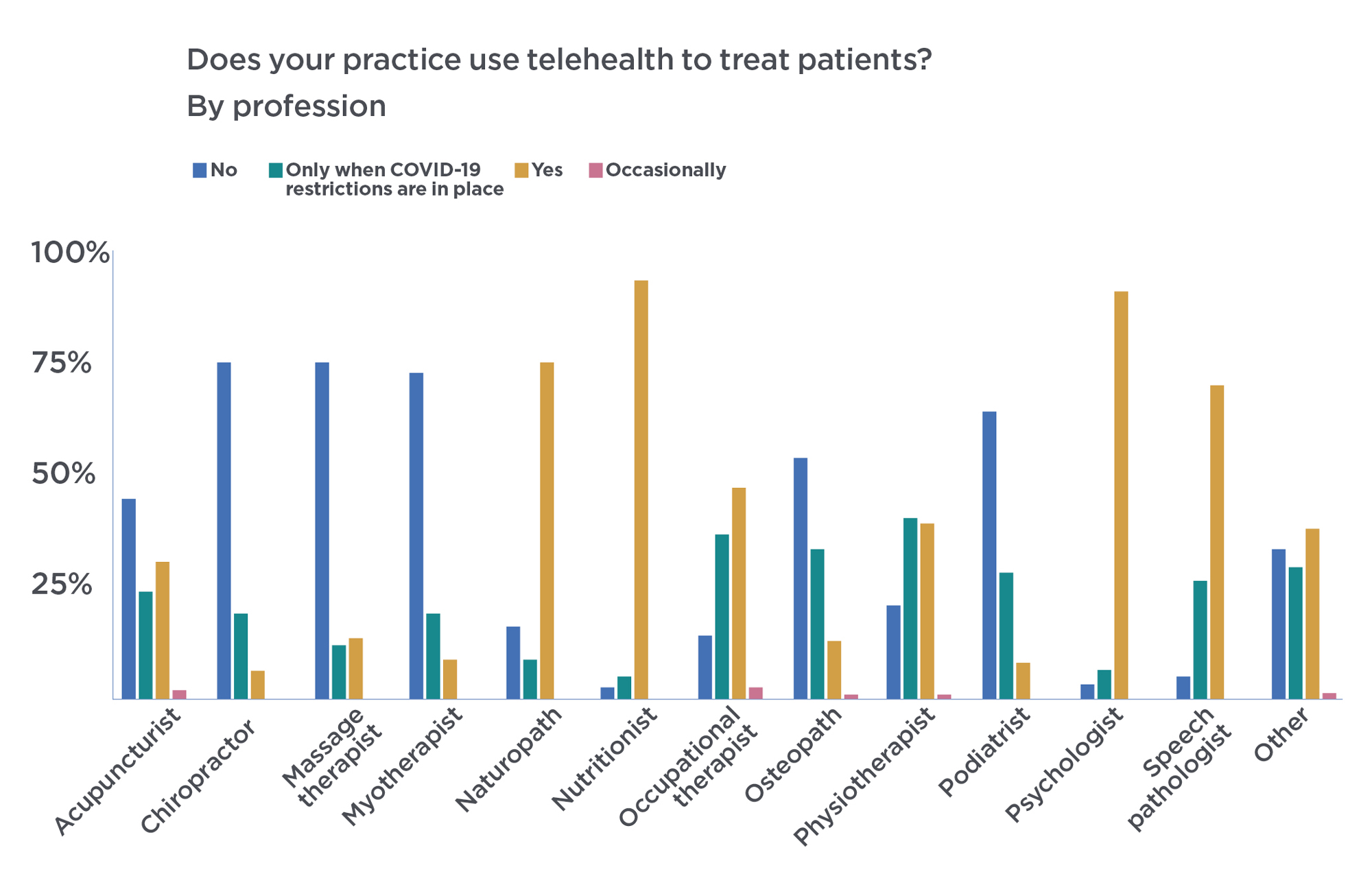What does working life look like for a psychologist today? The team at Cliniko wanted to know the answer to this question and get a picture of what’s happening in your practice after a very strange and challenging couple of years.
Last year we launched a survey – and received responses from 2654 allied health professionals, including many psychologists. The bulk of our respondents were based in Australia, the UK, Canada and New Zealand, but we had genuine international participation, hearing from people in more than 34 countries around the world.
As Cliniko offers practice management software, we had responses from a wide range of allied health professionals, but we’d like to share some of the specific responses from psychologists that we received. This is what you told us about the way you currently work.
Psychologists have embraced telehealth
Perhaps unsurprisingly, there’s been a major shift in the way health services are delivered since the outbreak of the pandemic. The use of telehealth across the globe has at least doubled – in Australia alone, phone and online appointments are a staggering 2.6 times more common than they previously were!
Psychologists have been at the forefront of this change – you’ve widely offered telehealth services, which clients have enthusiastically taken up. And, welcome to the future, this change is here to stay. For most psychology practices, telehealth is not solely being used as a last resort when COVID-19 restrictions are in place. In fact, 96% of surveyed psychologists now offer telephone and online appointments as an ongoing service, compared to 44% prior to the pandemic.
As Cliniko founder, Joel Friedlaender, observes: “A lot of people were surprised that professions like psychology can be so effective via telehealth, but the past two years have shifted these perceptions.” Psychologists, like many allied health professionals, have been incredibly resilient in the face of massive disruptions – and pivoting so smoothly to adaptations like telehealth is testament to that.
Most psychologist referrals come from GPs
While word of mouth leads to the majority of new referrals for most allied health services, psychology is a rare exception to this rule. Most referrals to psychologists come from GPs or other health providers, accounting for 35% of new clients (compared to 29% through word of mouth). It’s definitely worth cultivating your professional networks and making sure you’re on the radar of the doctors in your area if you’re looking to grow your client base.

Having said that, we’ve run a bunch of articles on the Cliniko blog about marketing, as well as how to attract self-referred clients to your practice. It might be useful to have a browse if you don’t operate through Medicare’s mental health treatment plan and you’re looking to increase the number of referrals from sources other than doctors.
Compared to other allied health professions, psychologists have a particularly high number of repeat visits from clients – 33% of your clients will continue to come for 8–10 appointments. The Medicare rebate is likely affecting these numbers but, of course, it’s also a product of the nature of psychological treatments.
Most psychologists are happy in their roles
In some heartening news, despite the enormous pressures psychologists have faced throughout the pandemic, most of you remain content at work. Just 7% of psychologists who responded to the survey were looking to leave their current role in the year ahead, with 2% expressing uncertainty about next career steps. Most practitioners are also happy with pay, describing salary as above average or excellent – though, for someone thinking about moving on, money is likely to be the motivating factor.
When it comes to long-term goals, psychologists demonstrate a high level of ambition – nearly one-quarter of you said you’re aiming to achieve senior practitioner status, with just as many aspiring to run your own business in the future. Yet, interestingly, the profession showed one of the lowest usages of business coaching. Only 18% of psychologists have engaged a coach, which is low compared to professions like nutrition (where 57% have used business mentoring).
The survey also revealed a range of general insights about the allied health sector, showing that (with the exception of solo operators) the average business employs just over three practitioners. This is demanding that practitioners take on a wide range of duties, with one-quarter of businesses not employing any administrators, nearly half not employing a bookkeeper and two-thirds not outsourcing any roles. Allied health professionals, psychologists included, are wearing many hats.
But this is just a snippet of what we learned. We hope it was useful and offered some insight into what’s currently happening for psychologists. To read the full breakdown of the survey results in more detail, we recommend heading over to the Cliniko blog.

